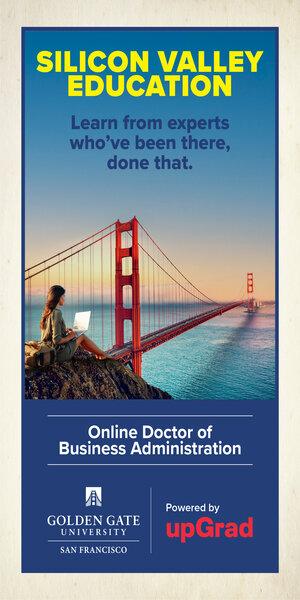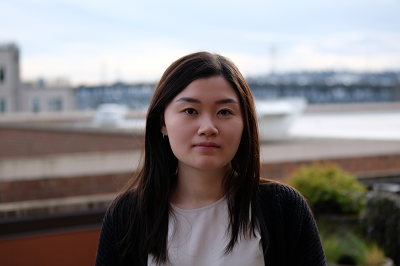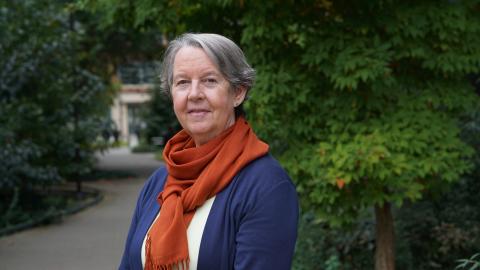

What to Do After PhD? – Pros and Cons of Pursuing Postdoc
“Received my PhD. Where do I go from here? What to do after PhD?”—is one of the most common challenges for students who have recently graduated. So if you’re stuck at this point of deciding whether to go ahead with academia or switch to a non-academic career, you’re not alone! How do you plan on taking what you have learned in your PhD and capitalize on it? How do you start your new career or use your PhD to take the next step in your existing one?
What to Do After PhD?
After having spent endless hours conducting your research and passing up enjoyable opportunities to complete your dissertation, you have finally attained the coveted doctorate degree. It’s a remarkable feat! But one struggle that holds on to you is—what do you do now that you’ve finished your PhD?
Be it from your seniors at the university or just having heard it from scholars in your field, one thing you may have realized is that tenure-track positions in academia are hard to come by. Despite the “default” propensity of PhD graduates pursuing academic research positions, they’re now moving beyond it. Additionally, an uncertain future in academia is a factor of concern amongst all. Here we shall discuss what to do after PhD?—and focus on the pros and cons of pursuing postdoc to make a calculated decision.
Should I Pursue Postdoc?
Navigating through the career waters after PhD can be quite treacherous. Moreover, with the job market in academia being intensely competitive, even students with excellent academic caliber aren’t assured of getting a position.
While the competition is persistent, doing a postdoc is becoming a prerequisite for a successful career. However, your zeal and confidence of wanting to stay in academia can take you a long way. The preliminary postdoc benefits to consider while applying for postdoc are:
- Additional time to expand your research through funding.
- Publish more research work to support or expand your research conducted during Phd.
- More opportunities for networking and collaboration.
Pros of Pursuing Postdoc
While the answer to “What to do after postdoc?” can vary for every researcher depending on their interests, the undeniable benefits of a postdoc position can’t be overseen.
1. Career Development Prospects:
Pursuing career as a postdoc fellow allows you an extended period to work on your research after your PhD. Furthermore, it offers you more flexible opportunities to leverage laboratory facilities than you could during your PhD. It allows you to travel freely for conferences, which lead to meeting scholars from your field and making newer professional connections. Additionally, a postdoc fellow gets opportunity to upskill themselves in their research field and allied domains.
2. Advanced Research Opportunities:
Given the immense value that a postdoc position poses, it opens doors to newer research opportunities. This is not just restricted to independent research but also to collaborative research. Consequently, due to lesser teaching and administrative responsibilities, it will provide you with time to publish more research work. Additionally, it allows you to revise your project cycle, begin a new project, and gain expertise in a given subject. Furthermore, it lets you collaborate with international researchers to work on similar projects. More importantly, as a postdoc your chances of receiving grants increases based on your success as a researcher during PhD.
3. Technique Development Opportunities :
As a postdoc fellow, you have more time to acquire new technology and research skills. In addition, it lets you gain experience in allied fields that you work in with your colleagues. This leads to an excellent opportunity to perfect your distinctive set of skills and learn advanced techniques in growing times.
4. Intellectual Development:
A postdoc fellowship is a distinguished phase in your career to focus exclusively on your intellectual development. Moreover, it is an important and most influential part of your research training. Therefore, choosing a postdoc can bolster your ability to pursue an advanced and successful research career.
Cons of Pursuing Postdoc
Despite the impressive benefits, considering the flip side of pursuing a postdoc position is imperative before taking the big decision.
1. No Tenure-track Guarantee
The uncertain career prospects in academia does not guarantee a tenure-track position even after completing your postdoc. According to a survey, only 30% of postdocs in the United States, and 20% postdocs in the United Kingdom succeed in acquiring a long term academic position. Moreover, some even have to climb through a series of postdoc positions before reaching a stable academic position. This predicament often leads many postdocs to quit academia and move to an industrial career.
2. Lack of Support
As postdocs are expected to work as an independent researcher, they often receive little to no professional advice or training from experienced researchers at the university. On the contrary, some institutions take advantages of the postdoc fellow as a teaching or researching captive. Furthermore, you may also experience poor working conditions as a result of being neglected by your department and surviving postdoc position becomes difficult.
3. Monetary Challenges
One of the major disadvantages of pursuing a postdoc position is meager salaries. The financial situation of postdoc fellows is so critical that an assistant professor is paid more than them, although fractionally, but yes!
4. Over-qualification
After struggling to acquire a stable academic position, postdocs often try to switch to industrial jobs. In this process, it is found that postdocs are over-qualified for industrial jobs and have to begin from scratch in the new field.
It’s undoubtedly a great feat to have successfully defended your PhD dissertation. How do you decide? What to do after PhD? What do you choose? Let these pros and cons help you in taking a well thought out decision. Tell us how this article helped you in the comments section below! You can also visit our Q&A forum for frequently asked questions related to different aspects of research writing and publishing answered by our team that comprises subject-matter experts, eminent researchers, and publication experts.
Rate this article Cancel Reply
Your email address will not be published.

Enago Academy's Most Popular Articles

- Publishing Research
- Reporting Research
How to Optimize Your Research Process: A step-by-step guide
For researchers across disciplines, the path to uncovering novel findings and insights is often filled…

- Diversity and Inclusion
- Trending Now
The Silent Struggle: Confronting gender bias in science funding
In the 1990s, Dr. Katalin Kariko’s pioneering mRNA research seemed destined for obscurity, doomed by…

Choosing the Right Analytical Approach: Thematic analysis vs. content analysis for data interpretation
In research, choosing the right approach to understand data is crucial for deriving meaningful insights.…

Addressing Barriers in Academia: Navigating unconscious biases in the Ph.D. journey
In the journey of academia, a Ph.D. marks a transitional phase, like that of a…

Comparing Cross Sectional and Longitudinal Studies: 5 steps for choosing the right approach
The process of choosing the right research design can put ourselves at the crossroads of…
Unlocking the Power of Networking in Academic Conferences
Mentoring for Change: Creating an inclusive academic landscape through support…
Intersectionality in Academia: Dealing with diverse perspectives
Meritocracy and Diversity in Science: Increasing inclusivity in STEM education

Sign-up to read more
Subscribe for free to get unrestricted access to all our resources on research writing and academic publishing including:
- 2000+ blog articles
- 50+ Webinars
- 10+ Expert podcasts
- 50+ Infographics
- 10+ Checklists
- Research Guides
We hate spam too. We promise to protect your privacy and never spam you.
I am looking for Editing/ Proofreading services for my manuscript Tentative date of next journal submission:

What should universities' stance be on AI tools in research and academic writing?
Educational resources and simple solutions for your research journey

What Next After PhD? Decoding Your Life After a PhD

Acquiring a doctoral degree is undoubtedly a momentous occasion worthy of celebrations—students can relax, unwind, and let go of the many stresses associated with the past few years of hard work. But soon, these celebrations are followed by questions on the steps needed to grow professionally after a PhD. In this post, I hope to guide you toward finding an answer to the question “What comes after a PhD?”
So what does life after a PhD look like? It is inevitable that your PhD will leave you with an array of skills that are transferable across different sectors. These could be technical skills that are domain-specific and, more importantly, broad skills such as project management, data analysis, and effective communication. Often, it takes a while after a PhD for students to acknowledge that they are indeed equipped with these skills. Hence, it is a good idea to create a portfolio, mapping different skills to the projects and tasks that were undertaken during and after your PhD.
Choosing the next step in your career and life after PhD would then trickle down to your personal preferences and leveraging your skills tactfully. If you’ve felt stuck with the question of what to do after a PhD, here are some career options to consider:
- Postdoctoral fellowship. After a PhD, if you are keen to continue doing research, you can pursue a postdoctoral fellowship in an academic institution and then work toward securing a tenure-track professorship. And while this path surely has its perks, especially if you want to set up your own research lab, it may be helpful to know that this is not the only worthwhile career path in life after a PhD.
- Industry research. If you are not keen on research in academia after a PhD, you can opt to join the industry directly or after a few years of academic or industrial postdoctoral fellowship. If you choose this life after a PhD, you may need to invest additional time and energy in understanding the differences in work ethic and culture between industry and academia. However, orientation to these aspects is usually part of the training that you might receive as a new employee. Upon entering the industry, you can expand your portfolio by exploring sales and marketing, product development, and business development options.
- Publication support. If you envision your life after PhD to be closely associated with research, but not directly involved in it, you can opt for careers in publication support, and work with publishers/journals or organizations specializing in scholarly communications.
- Science journalism and social outreach. If after a PhD, you are keen to explore your communication skills and contribute to filling the gap between science and society, you can opt for a career in science journalism/communication and can look for organizations that are involved in science outreach and social engagement.

If you have wondered about your career after a PhD, by now it may be clear that what comes after PhD is not a question you should stress about as there is no dearth of career options. However, here are a few additional points to consider helping you shape your life after PhD and to ensure that your career choice aligns well with your personal preferences.
- Financial aspirations. Financial perks vary drastically across the above-mentioned career options, and it is important to understand your personal financial goals before deciding what to do after PhD. Choosing an option that will help you grow both professionally and financially will keep you happier in the long run.
- Working in a team vs. working solo. As a PhD student, you may be used to working on your own and taking complete ownership of your projects and ideas. You may not always have this option in your life after PhD. It is important to acknowledge your preference regarding the change that might occur in an organization where you are expected to engage in teamwork and share credit for your ideas.
- Fixed work hours vs. flexible work hours . The doctoral journey is filled with unpredictability and you might have started getting used to the flexible work hours. However, after a PhD if you are planning to work in an organization where fixed work hours are a norm, then you might want to relook at your preferences and reconsider what to do after a PhD.
- Hierarchical vs. non-hierarchical work environment. This can be an important point to consider when assessing where you can thrive the most in your life after a PhD. A structured work environment, like an established company with a defined hierarchy may provide you security, stability, and opportunities for a steady rise up the career ladder. On the other hand, working in a non-hierarchical or non-structured environment like a start-up may require you to perform a variety of roles simultaneously, give you the flexibility and chance to explore new domains and acquire new skills regularly, and could be rewarding in its own way after a PhD.
Through this article, we hope you found an answer to the common conundrum of what’s next after a PhD. Ultimately, for a happy and satisfying life after PhD, adopting a growth mindset will take you far in your career, no matter which direction you choose.
Related Posts

What is Inductive Reasoning? Definition, Types and Examples

Independent vs Dependent Variables: Definitions & Examples

- October 11, 2023
- Education Advice
Ph.D. vs. Doctorate: What are the Differences?
UOTP Marketing

For those who have a deep-seated attitude, pursuing a doctoral degree can be a tough yet beneficial journey. Currently enrolled in a doctorate program means that a person has already scooched over college admissions, went through high stake tests and exams, and finished all those research papers and long hours spent in university libraries hitting the books. While studying for a doctorate entails asserting oneself to an extensive amount of quality time and money , its significance and purpose usually pave the way to a lucrative end.
After having finished the Master’s Degree , students begin to think about their next step in their academic career. Then, paradoxically, while navigating through academia, they find themselves baffled by the immense terms and terminologies used to label specific degrees. Because the terms “Doctorate” and “Ph.D.” are somehow interlocked and overlap, and because “PhD” is sometimes used inconsistently, it can lead to considerable confusion. Ph.D. vs. Doctorate? You might wonder what their difference is, and why they are important. E xplaining what each of these terms stands for, the difference between them, and why they are valuable, can help you steer yourself down the right path from the outset.
Doctorate Degree vs. Ph.D.

At first glance, it is pretty easy to confuse these two terms. But it is important for everyone to be able to make a distinction between the two. In this article, we will discuss the difference between Ph.D. and Doctorate in detail in order to get rid of any confusion you may have. In the academic world, the terms Doctorate and Ph.D. are currently used interchangeably. Both of them are the top cap of the ladder. However, a doctorate is mostly used as an umbrella term covering many fields ranging from professional degrees, humanities, and scientific disciplines.
A Ph.D. or Doctor of Philosophy, on the other hand, is a subcategory of a doctoral degree, it is much more distinct and clear-cut and is usually narrower in nature encompassing only humanities and scientific fields. In plain English, when someone says they are enrolling on a doctoral degree, it means they are doing a Ph.D. in a specific field. So, technically, in common parlance, there is no difference between the two terms.
But at the other end of the spectrum, one should be careful not to confuse a professional doctoral degree with a Ph.D. The former is more practical and is designed to prepare students to apply existing knowledge to find solutions to real-life problems and has a direct application to a particular profession.
A Ph.D. is theoretical by nature and is more academic and research-focused. it is often fixed on disseminating knowledge by conducting authentic research which means reviewing and identifying gaps in current literature and evaluating the relevance of existing and emerging theories within a particular field.
What Is a Ph.D. Degree and Why Should You Go for It?
Students who acquire a Ph.D. are justly proud — they wear it as a badge of identity in the academic elite. Traditionally, a Ph.D. was associated with teaching, which from Latin licentia docendi meant “license to teach”. However, the concept of Ph.D. has been on shifting sands nowadays and has become a more general term that isn’t necessarily confined to teaching only.
The Value of a PhD

Obtaining a Ph.D. helps you capitalize on the emerging academic opportunities making you more easily identifiable to employers or businesses seeking to fill professional, higher-level job positions. Many of these career options, conversely, are not available to those who do not belong to the Ph.D. club. While pursuing a Ph.D. requires devoting a tremendous effort and time and making significant personal sacrifices pushing the boundaries of knowledge, it’s all in service of the area of study you’re most passionate and zealous about. Ultimately, once you’ve attained your Ph.D., you will have achieved the pinnacle of education— something not too many people have or are able to accomplish.
FREE RESOURCE

A Guide to Choosing and Applying to Ph.D. Programs
Learn everything you need to know about selecting and applying to Ph.D. programs. Learn tips and tricks for a successful application and find your ideal program today!
What Is a Doctorate Degree?
A doctoral or doctorate degree is usually the most advanced degree one can earn in an academic discipline. Many pursue a doctorate degree to increase their professional credibility, be acknowledged as an expert in a specific field, and improve their resume.
A doctorate degree is a graduate-level credential that is usually earned after multiple years of graduate school. Earning a doctoral degree requires a significant level of research and work. In order to get this degree, one has to research a subject thoroughly, conduct new research and analysis, and provide a solution or interpretation into the field. But what types of doctoral degrees are available?
Types of Doctorate Degrees
There are two categories of doctorate degrees: an academic degree and a professional doctorate degree. An academic degree focuses on research, data analysis, and the evaluation of theory. A professional doctorate degree, on the other hand, is considered a terminal degree, which means that one has achieved the most advanced degree in the field. This degree is specifically designed for working professionals who want to grow in their careers.
Professional Doctorate Degrees
A professional doctorate is designed for working professionals who have experience in the field and want to increase their knowledge, improve their credibility, and advance their careers. This degree focuses on applying research to practical issues, coming up with interpretation and solutions, as well as designing effective professional practices within a particular field.
Professional doctoral degrees include:
Doctor of Business Administration (DBA)
The DBA degree is ideal for students who already have a general business background and are interested in delving deeper into the practical and theoretical aspects that underpin business education. More to the point, in DBA you will develop the ability to solve real-life problems, discover the relevant expertise to innovate and uphold complex business issues and so much more. Upon completion, DBA students will possess enhanced leadership and strategic skills as well as the tools to propel their careers in today’s marketplace. The Business Administration industry is keen on finding such graduates with business skills and this is indicated by the immense job positions currently available.
Doctor of Education (Ed.D.)
If you are interested in setting your eyes on creating lifelong learning among your students, making a positive influence in educational culture, contributing to the growing body of research in the education realm , or just enhancing your subject matter expertise, the Doctor of Education program ticks all the boxes. This degree maintains a rigorous approach in academic education that prepares graduates to showcase the skills and expertise to devise solutions in tackling the challenges in contemporary education practice and become transformational leaders in the industry.
Doctor of Computer Science (DCS)
The demand for computer scientists has reached its peak and it is among the most sought-after positions nowadays. With a degree in DCS, you will have the opportunity to design, apply innovative experiments, predict trends and, ultimately, develop a richer understanding and contribute to your area of expertise. After all, who doesn’t want an exciting and financially stable career?
Interested in pursuing a degree?
Fill out the form and get all admission information you need regarding your chosen program.
This will only take a moment.
Message Received!
Thank you for reaching out to us. we will review your message and get right back to you within 24 hours. if there is an urgent matter and you need to speak to someone immediately you can call at the following phone number:.
By clicking the Send me more information button above, I represent that I am 18+ years of age, that I have read and agreed to the Terms & Conditions and Privacy Policy , and agree to receive email marketing and phone calls from UOTP. I understand that my consent is not required to apply for online degree enrollment. To speak with a representative without providing consent, please call +1 (202) 274-2300
- We value your privacy.
Doctor of Medicine (M.D.)
The Doctor of Medicine degree is designed to prepare you for various medical challenges in different settings nationally and internationally. This program will further develop your critical thinking and clinical reasoning skills required for safe, high-quality medical practices. It will also improve your leadership, communication, and teamwork skills for collaborative patient care.
Doctor of Optometry (O.D.)
This professional degree typically requires four years of study. It focuses on basic biological sciences such as anatomy and physiology, microbiology, neuroanatomy, and so on. This doctoral degree will prepare, educate, and train professionals to practice at the highest level of proficiency, professionalism, and integrity.
Doctor of Psychology (PsyD)
The Doctoral of Psychology degree concentrates on the clinical and applied aspects of psychology. This type of doctorate prepares students for professional practice and clinical placement. This degree will be highly beneficial when working directly with patients who need psychology services. In addition, this degree allows doctors of psychology to confidently function as researchers and clinicians.
How to Choose a Ph.D. Program?
Choosing a Ph.D. program can be pretty challenging; it is a big academic decision and investment that requires commitment and perseverance. But how can you pick the right Ph.D. program for you? Well, there are some tips to help you choose the best fit for your goals and preferences:
- Think about the reasons why you want a Ph.D., what you expect to gain from it, and whether it is compatible with your professional goals.
- Consider your research environment.
- Take your time to research, compare, and consider multiple opportunities carefully.
- Pick a subject that interests and motivates you but is also practical.
- Ask your professors and other scholars in the field for advice.
All in all, the terms “Doctorate’’ and “Ph.D.” are in essence the same, which means all Ph.D. students are Doctoral students as well. On the other hand, earning a Ph.D. degree is no joke. If anything, Ph.D. students have the tenacity, patience, persistence, and years of hard work that you can vouch for. Ultimately, deciding what type of doctoral degree you should hop on, depends on your career goals, what you are passionate about and how you are going to achieve it.
Frequently Asked Questions
What is the difference between a doctorate and a ph.d..
In academic contexts, the terms “Doctorate” and “Ph.D.” are often used interchangeably, but there is a distinction. A Doctorate is an umbrella term covering a wide range of fields, including professional degrees, humanities, and scientific disciplines. A Ph.D., or Doctor of Philosophy, is a specific type of doctoral degree, typically focused on research and academic pursuits in the humanities and scientific fields.
Why should I pursue a Ph.D.?
Pursuing a Ph.D. can be a valuable endeavor, as it opens up academic and research opportunities, enhances your expertise in a specific field, and makes you more attractive to employers seeking candidates for high-level positions. It’s a chance to push the boundaries of knowledge and become an expert in your chosen study area.
What are the benefits of a professional doctorate?
Professional doctorate degrees, such as Doctor of Business Administration (DBA) or Doctor of Education (Ed.D.), are designed for working professionals who want to apply research to practical issues in their field. These degrees can enhance your career prospects, leadership skills, and problem-solving abilities within your profession.
How do I choose the right Ph.D. program?
To choose the right Ph.D. program, consider your career goals, research environment, and personal interests. Take your time to research and compare programs, seek advice from professors and experts in your field, and ensure that the program aligns with your professional aspirations.
What are the main differences between academic and professional doctorate degrees?
Academic doctorate degrees focus on research, theory evaluation, and data analysis, often leading to careers in academia or research. Professional doctorate degrees are more practical, designed for working professionals, and concentrate on applying research to real-world problems within a specific field.
Can I earn a Ph.D. in any field?
Ph.D. programs are available in various fields, including humanities, social sciences, natural sciences, engineering, and more. However, the specific availability of Ph.D. programs may vary by field and university.
Is a Ph.D. a challenging journey?
Yes, pursuing a Ph.D. can be a challenging journey that requires dedication, patience, and years of hard work. It involves conducting original research, writing a dissertation, and often teaching or assisting in courses. It’s a significant commitment, but it can be highly rewarding.
What are the potential career opportunities after earning a Ph.D.?
With a Ph.D., you can pursue careers in academia as a professor or researcher, work in research and development roles in various industries, or take on leadership positions in organizations. The specific career path will depend on your field of study and personal interests.
Share it with your friends!
Explore more.

Accounting vs. Finance Degree: Which Major to Choose?

12 Important Bookkeeping Skills You Need for a Successful Career
Recent resources.

What Is Scope In Project Management?

5 Phases of Project Management Explained

Master’s Degrees: The Best Paying Fields

COO vs CEO: Differences and Responsibilities
INTERESTED IN LEARNING MORE?
Chat with an Admissions Officer Now!

- Associates Degree
- Bachelors Degrees
- Masters Degrees
- Doctoral Degrees
- Faculty & Staff
- Accreditation
- Student Experience
QUICK LINKS
- Admission Requirements
- Military Students
- Financial Aid
How Long Does It Take to Get a Ph.D. Degree?
Earning a Ph.D. from a U.S. grad school typically requires nearly six years, federal statistics show.
How Long It Takes to Get a Ph.D. Degree

Caiaimage | Tom Merton | Getty Images
A Ph.D. is most appropriate for someone who is a "lifelong learner."
Students who have excelled within a specific academic discipline and who have a strong interest in that field may choose to pursue a Ph.D. degree. However, Ph.D. degree-holders urge prospective students to think carefully about whether they truly want or need a doctoral degree, since Ph.D. programs last for multiple years.
According to the Survey of Earned Doctorates, a census of recent research doctorate recipients who earned their degree from U.S. institutions, the median amount of time it took individuals who received their doctorates in 2017 to complete their program was 5.8 years. However, there are many types of programs that typically take longer than six years to complete, such as humanities and arts doctorates, where the median time for individuals to earn their degree was 7.1 years, according to the survey.
Some Ph.D. candidates begin doctoral programs after they have already obtained master's degrees, which means the time spent in grad school is a combination of the time spent pursuing a master's and the years invested in a doctorate. In order to receive a Ph.D. degree, a student must produce and successfully defend an original academic dissertation, which must be approved by a dissertation committtee. Writing and defending a dissertation is so difficult that many Ph.D. students drop out of their Ph.D. programs having done most of the work necessary for degree without completing the dissertation component. These Ph.D. program dropouts often use the phrase " all but dissertation " or the abbreviation "ABD" on their resumes.
According to a comprehensive study of Ph.D. completion rates published by The Council of Graduate Schools in 2008, only 56.6% of people who begin Ph.D. programs earn Ph.D. degrees.
Ian Curtis, a founding partner with H&C Education, an educational and admissions consulting firm, who is pursuing a Ph.D. degree in French at Yale University , says there are several steps involved in the process of obtaining a Ph.D. Students typically need to fulfill course requirements and pass comprehensive exams, Curtis warns. "Once these obligations have been completed, how long it takes you to write your dissertation depends on who you are, how you work, what field you're in and what other responsibilities you have in life," he wrote in an email. Though some Ph.D. students can write a dissertation in a single year, that is rare, and the dissertation writing process may last for several years, Curtis says.
Curtis adds that the level of support a Ph.D. student receives from an academic advisor or faculty mentor can be a key factor in determining the length of time it takes to complete a Ph.D. program. "Before you decide to enroll at a specific program, you’ll want to meet your future advisor," Curtis advises. "Also, reach out to his or her current and former students to get a sense of what he or she is like to work with."
Curtis also notes that if there is a gap between the amount of time it takes to complete a Ph.D. and the amount of time a student's funding lasts, this can slow down the Ph.D. completion process. "Keep in mind that if you run out of funding at some point during your doctorate, you will need to find paid work, and this will leave you even less time to focus on writing your dissertation," he says. "If one of the programs you’re looking at has a record of significantly longer – or shorter – times to competition, this is good information to take into consideration."
He adds that prospective Ph.D. students who already have master's degrees in the field they intend to focus their Ph.D. on should investigate whether the courses they took in their master's program would count toward the requirements of a Ph.D. program. "You’ll want to discuss your particular situation with your program to see whether this will be possible, and how many credits you are likely to receive as the result of your master’s work," he says.
How to Write M.D.-Ph.D. Application Essays
Ilana Kowarski May 15, 2018

Emmanuel C. Nwaodua, who has a Ph.D. degree in geology, says some Ph.D. programs require candidates to publish a paper in a first-rate, peer-reviewed academic journal. "This could extend your stay by a couple of years," he warns.
Pierre Huguet, the CEO and co-founder of H&C Education, says prospective Ph.D. students should be aware that a Ph.D. is designed to prepare a person for a career as a scholar. "Most of the jobs available to Ph.D. students upon graduation are academic in nature and directly related to their fields of study: professor, researcher, etc.," Huguet wrote in an email. "The truth is that more specialization can mean fewer job opportunities. Before starting a Ph.D., students should be sure that they want to pursue a career in academia, or in research. If not, they should make time during the Ph.D. to show recruiters that they’ve traveled beyond their labs and libraries to gain some professional hands-on experience."
Jack Appleman, a business writing instructor, published author and Ph.D. candidate focusing on organizational communication with the University at Albany—SUNY , says Ph.D. programs require a level of commitment and focus that goes beyond what is necessary for a typical corporate job. A program with flexible course requirements that allow a student to customize his or her curriculum based on academic interests and personal obligations is ideal, he says.
Joan Kee, a professor at the University of Michigan with the university's history of art department, says that the length of time required for a Ph.D. varies widely depending on what subject the Ph.D. focuses on. "Ph.D. program length is very discipline and even field-specific; for example, you can and are expected to finish a Ph.D, in economics in under five years, but that would be impossible in art history (or most of the humanities)," she wrote in an email.
Kee adds that humanities Ph.D. programs often require someone to learn a foreign language, and "fields like anthropology and art history require extensive field research." Kee says funding for a humanities Ph.D. program typically only lasts five years, even though it is uncommon for someone to obtain a Ph.D. degree in a humanities field within that time frame. "Because of this, many if not most Ph.D. students must work to make ends meet, thus further prolonging the time of completion," she says.
Jean Marie Carey, who earned her Ph.D. degree in art history and German from the University of Otago in New Zealand, encourages prospective Ph.D. students to check whether their potential Ph.D. program has published a timeline of how long it takes a Ph.D. student to complete their program. She says it is also prudent to speak with Ph.D. graduates of the school and ask about their experience.
Online Doctoral Programs: What to Expect
Ronald Wellman March 23, 2018

Kristin Redington Bennett, the founder of the Illumii educational consulting firm in North Carolina, encourages Ph.D. hopefuls to think carefully about whether they want to become a scholar. Bennett, who has a Ph.D. in curriculum and assessment and who previously worked as an assistant professor at Wake Forest University , says a Ph.D. is most appropriate for someone who is a "lifelong learner." She says someone contemplating a Ph.D. should ask themselves the following questions "Are you a very curious person... and are you persistent?"
Bennett urges prospective Ph.D. students to visit the campuses of their target graduate programs since a Ph.D. program takes so much time that it is important to find a school that feels comfortable. She adds that aspiring Ph.D. students who prefer a collaborative learning environment should be wary of graduate programs that have a cut-throat and competitive atmosphere, since such students may not thrive in that type of setting.
Alumni of Ph.D. programs note that the process of obtaining a Ph.D. is arduous, regardless of the type of Ph.D. program. "A Ph.D. is a long commitment of your time, energy and financial resources, so it'll be easier on you if you are passionate about research," says Grace Lee, who has a Ph.D. in neuroscience and is the founder and CEO of Mastery Insights, an education and career coaching company, and the host of the Career Revisionist podcast.
"A Ph.D. isn't about rehashing years of knowledge that is already out there, but rather it is about your ability to generate new knowledge. Your intellectual masterpiece (which is your dissertation) takes a lot of time, intellectual creativity and innovation to put together, so you have to be truly passionate about that," Lee says.
Curtis says a prospective Ph.D. student's enthusiasm for academic work, teaching and research are the key criteria they should use to decide whether to obtain a Ph.D. degree. "While the time it takes to complete a doctorate is an understandable concern for many, my personal belief is that time is not the most important factor to consider," he says. "Good Ph.D. programs provide their students with generous stipends, health care and sometimes even subsidized housing."
Erin Skelly, a graduate admissions counselor at the IvyWise admissions consulting firm, says when a Ph.D. students struggles to complete his or her Ph.D. degree, it may have more to do with the student's academic interests or personal circumstances than his or her program.
"The time to complete a Ph.D. can depend on a number of variables, but the specific discipline or school would only account for a year or two's difference," she wrote in an email. "When a student takes significantly longer to complete a Ph.D. (degree), it's usually related to the student's coursework and research – they need to take additional coursework to complete their comprehensive exams; they change the focus of their program or dissertation, requiring extra coursework or research; or their research doesn't yield the results they hoped for, and they need to generate a new theory and conduct more research."
Skelly warns that the average completion time of a Ph.D. program may be misleading in some cases, if the average is skewed based on one or two outliers. She suggests that instead of focusing on the duration of a particular Ph.D. program, prospective students should investigate the program's attritition and graduation rates.
"It is worthwhile to look at the program requirements and the school's proposed timeline for completion, and meet current students to get their input on how realistic these expectations for completion are," Skelly says. "That can give you an honest idea of how long it will really take to complete the program."
Searching for a grad school? Access our complete rankings of Best Graduate Schools.
Tags: graduate schools , education , students
You May Also Like
How to decide if an mba is worth it.
Sarah Wood March 27, 2024

Choosing A Major for Med School
Andrew Bauld March 26, 2024

Handling a Law School Rejection Letter
Gabriel Kuris March 25, 2024

College Majors and MBA Admissions
Anthony Todd Carlisle March 20, 2024

Tips While Awaiting Med School Decision
Zach Grimmett March 19, 2024

2024 Best Grad Schools Rankings Coming
Robert Morse and Eric Brooks March 19, 2024

Tips for Aspiring Lawyers in High School
Gabriel Kuris March 18, 2024

4 Surprising MBA Application Mistakes
Andrew Warner March 18, 2024

Types of Doctors Premeds Can Become
Jarek Rutz March 14, 2024

Applying to Law School as a Minority
Sammy Allen March 14, 2024

Smart. Open. Grounded. Inventive. Read our Ideas Made to Matter.
Which program is right for you?

Through intellectual rigor and experiential learning, this full-time, two-year MBA program develops leaders who make a difference in the world.
A rigorous, hands-on program that prepares adaptive problem solvers for premier finance careers.
A 12-month program focused on applying the tools of modern data science, optimization and machine learning to solve real-world business problems.
Earn your MBA and SM in engineering with this transformative two-year program.
Combine an international MBA with a deep dive into management science. A special opportunity for partner and affiliate schools only.
A doctoral program that produces outstanding scholars who are leading in their fields of research.
Bring a business perspective to your technical and quantitative expertise with a bachelor’s degree in management, business analytics, or finance.
A joint program for mid-career professionals that integrates engineering and systems thinking. Earn your master’s degree in engineering and management.
An interdisciplinary program that combines engineering, management, and design, leading to a master’s degree in engineering and management.
Executive Programs
A full-time MBA program for mid-career leaders eager to dedicate one year of discovery for a lifetime of impact.
This 20-month MBA program equips experienced executives to enhance their impact on their organizations and the world.
Non-degree programs for senior executives and high-potential managers.
A non-degree, customizable program for mid-career professionals.
PhD Program
Program overview.
Now Reading 1 of 4
Rigorous, discipline-based research is the hallmark of the MIT Sloan PhD Program. The program is committed to educating scholars who will lead in their fields of research—those with outstanding intellectual skills who will carry forward productive research on the complex organizational, financial, and technological issues that characterize an increasingly competitive and challenging business world.
Start here.
Learn more about the program, how to apply, and find answers to common questions.
Admissions Events
Check out our event schedule, and learn when you can chat with us in person or online.
Start Your Application
Visit this section to find important admissions deadlines, along with a link to our application.
Click here for answers to many of the most frequently asked questions.
PhD studies at MIT Sloan are intense and individual in nature, demanding a great deal of time, initiative, and discipline from every candidate. But the rewards of such rigor are tremendous: MIT Sloan PhD graduates go on to teach and conduct research at the world's most prestigious universities.
PhD Program curriculum at MIT Sloan is organized under the following three academic areas: Behavior & Policy Sciences; Economics, Finance & Accounting; and Management Science. Our nine research groups correspond with one of the academic areas, as noted below.
MIT Sloan PhD Research Groups
Behavioral & policy sciences.
Economic Sociology
Institute for Work & Employment Research
Organization Studies
Technological Innovation, Entrepreneurship & Strategic Management
Economics, Finance & Accounting
Accounting
Management Science
Information Technology
System Dynamics
Those interested in a PhD in Operations Research should visit the Operations Research Center .

PhD Program Structure
Additional information including coursework and thesis requirements.

MIT Sloan Predoctoral Opportunities
MIT Sloan is eager to provide a diverse group of talented students with early-career exposure to research techniques as well as support in considering research career paths.
Rising Scholars Conference
The fourth annual Rising Scholars Conference on October 25 and 26 gathers diverse PhD students from across the country to present their research.
Now Reading 2 of 4
The goal of the MIT Sloan PhD Program's admissions process is to select a small number of people who are most likely to successfully complete our rigorous and demanding program and then thrive in academic research careers. The admission selection process is highly competitive; we aim for a class size of nineteen students, admitted from a pool of hundreds of applicants.
What We Seek
- Outstanding intellectual ability
- Excellent academic records
- Previous work in disciplines related to the intended area of concentration
- Strong commitment to a career in research
MIT Sloan PhD Program Admissions Requirements Common Questions
Dates and Deadlines
Admissions for 2024 is closed. The next opportunity to apply will be for 2025 admission. The 2025 application will open in September 2024.
More information on program requirements and application components
Students in good academic standing in our program receive a funding package that includes tuition, medical insurance, and a fellowship stipend and/or TA/RA salary. We also provide a new laptop computer and a conference travel/research budget.
Funding Information
Throughout the year, we organize events that give you a chance to learn more about the program and determine if a PhD in Management is right for you.
PhD Program Events
May phd program overview.
During this webinar, you will hear from the PhD Program team and have the chance to ask questions about the application and admissions process.
June PhD Program Overview
July phd program overview, august phd program overview.
Complete PhD Admissions Event Calendar
Unlike formulaic approaches to training scholars, the PhD Program at MIT Sloan allows students to choose their own adventure and develop a unique scholarly identity. This can be daunting, but students are given a wide range of support along the way - most notably having access to world class faculty and coursework both at MIT and in the broader academic community around Boston.
Now Reading 3 of 4

Profiles of our current students
MIT Sloan produces top-notch PhDs in management. Immersed in MIT Sloan's distinctive culture, upcoming graduates are poised to innovate in management research and education.
Academic Job Market
Doctoral candidates on the current academic market
Academic Placements
Graduates of the MIT Sloan PhD Program are researching and teaching at top schools around the world.
view recent placements
MIT Sloan Experience
Now Reading 4 of 4
The PhD Program is integral to the research of MIT Sloan's world-class faculty. With a reputation as risk-takers who are unafraid to embrace the unconventional, they are engaged in exciting disciplinary and interdisciplinary research that often includes PhD students as key team members.
Research centers across MIT Sloan and MIT provide a rich setting for collaboration and exploration. In addition to exposure to the faculty, PhD students also learn from one another in a creative, supportive research community.
Throughout MIT Sloan's history, our professors have devised theories and fields of study that have had a profound impact on management theory and practice.
From Douglas McGregor's Theory X/Theory Y distinction to Nobel-recognized breakthroughs in finance by Franco Modigliani and in option pricing by Robert Merton and Myron Scholes, MIT Sloan's faculty have been unmatched innovators.
This legacy of innovative thinking and dedication to research impacts every faculty member and filters down to the students who work beside them.

Faculty Links
- Accounting Faculty
- Economic Sociology Faculty
- Finance Faculty
- Information Technology Faculty
- Institute for Work and Employment Research (IWER) Faculty
- Marketing Faculty
- Organization Studies Faculty
- System Dynamics Faculty
- Technological Innovation, Entrepreneurship, and Strategic Management (TIES) Faculty
Student Research
“MIT Sloan PhD training is a transformative experience. The heart of the process is the student’s transition from being a consumer of knowledge to being a producer of knowledge. This involves learning to ask precise, tractable questions and addressing them with creativity and rigor. Hard work is required, but the reward is the incomparable exhilaration one feels from having solved a puzzle that had bedeviled the sharpest minds in the world!” -Ezra Zuckerman Sivan Alvin J. Siteman (1948) Professor of Entrepreneurship
Sample Dissertation Abstracts - These sample Dissertation Abstracts provide examples of the work that our students have chosen to study while in the MIT Sloan PhD Program.
We believe that our doctoral program is the heart of MIT Sloan's research community and that it develops some of the best management researchers in the world. At our annual Doctoral Research Forum, we celebrate the great research that our doctoral students do, and the research community that supports that development process.
The videos of their presentations below showcase the work of our students and will give you insight into the topics they choose to research in the program.
How Should We Measure the Digital Economy?
2020 PhD Doctoral Research Forum Winner - Avinash Collis
Watch more MIT Sloan PhD Program Doctoral Forum Videos

Keep Exploring
Ask a question or register your interest
Faculty Directory
Meet our faculty.
Is it Possible to Get My PhD After My MBA?

In academia, numerous accomplishments can be achieved. You can earn a dual degree and have expertise in multiple fields, or further your career potential by going back to school . But what about progressing from an MBA to a PhD?
In regards to higher education, many consider earning a PhD, or doctorate degree, the pinnacle of success. Usually, due to passion for a particular industry or subject, a PhD candidate will spend years of rigorous research to unpack its intricacies and become a leading expert in the field. At the end of their studies, they are able to finally see their work come to fruition when they receive their doctorate and join alongside other scholars. However, is it typical for an MBA graduate to move onto pursuing their PhD? And is there a specific purpose? Are there different types of PhD programs? What is the difference between a PhD and DBA?
To answer the budding question: yes, you can pursue your PhD after earning your MBA, and choosing to earn a doctorate is entirely up to you and your aspirations. To help you better understand if getting a PhD is the right choice, we look at the path an MBA graduate can take to earn their PhD, one of the higher purposes of a doctorate, and the different types of academic programs.
What is a PhD, and What is it Used For?
By definition, a PhD is a Doctor of Philosophy in a particular discipline, which is why it's also referred to as a doctorate. This focus is typically for individuals highly passionate about a specific subject matter, driven by the pursuit to understand it better through rigorous research. A majority of students seeking their PhD are eager researchers, although there are always exceptions, and each carries out years of highly intensive research to conclude their original thesis and earn their doctorate.
In terms of translating your education into a career, a doctorate can be used in a plethora of fields, especially if one’s thesis is around a wider subject matter and can be a discipline applied to various industries (take organizational development, for example). For those who are passionate about a career in research, a doctoral degree is a perfect fit. Possibly the most popular field for those with a doctorate is a fruitful career in academia, teaching their subject matter to others interested in the same area. Many graduates become faculty members at business schools upon completing their PhD and provide their expertise to their students. Regardless of which industry you choose, you can be assured that a PhD will provide you with numerous opportunities.
How Long Does it Take to Progress from an MBA to PhD?
The timeframe for earning your PhD can vary depending on program and location. Many countries have varying timelines of how long the completion of a doctoral program will take. In the United States, the average is around 4-5 years of completion after receiving your Master of Business Administration.
Do You Need an MBA to Get a PhD?
To be accepted into a doctoral program, you must have a master’s degree. It does not have to be a Master of Business Administration, but it does need to be a master’s of some form. Depending on your area of specialization, it could be advantageous to earn your MBA in pursuit of a PhD if you are planning to embark on a career in business upon completion of your doctorate. Additionally, one important aspect to consider is the program itself. It is important to look into a program’s requirements before applying to meet the eligibility criteria.
The Difference Between a DBA and a PhD
For those specifically interested in a career in business, a Doctor of Business Administration (DBA) is a highly beneficial doctoral program. A DBA focuses on a broader spectrum of business disciplines, dedicating research toward multiple corporate facets, and practical implementation. On the contrary, a PhD narrows into a specific area of discipline and research, emphasizing theory, and it’s potential implications. While both are heavily centered around research and implementation, a DBA sets business executives and leaders on a path to discover new possibilities for their organizations and businesses. In a way, it allows established business professionals to “trailblaze” the way for new and innovative ideas that can disrupt the market and set a precedent for the future of business.
Get Your MBA or DBA at Pepperdine Graziadio Business School
At Pepperdine Graziadio, we proudly offer degrees to accommodate business professionals at any stage of their lives and careers. Our full and part-time MBA programs are designed to prepare candidates for a successful career in values-based business leadership. All of our MBA programs offer a personalized learning approach executed by our world-class faculty. Each program is characterized by its top-ranked business curriculum that can be coupled with an academic concentration.
Our Executive Doctor of Business Administration (DBA) program has been carefully designed for the tenured business leader looking to drive groundbreaking innovations. This rigorous program allows candidates to gain in-depth knowledge and finetune their expertise through applied research. Also, executives enjoy learning alongside changemakers in various industries and participating in exclusive opportunities available only to DBA candidates.
Learn more about which programs fit your career aspirations and academic interests.
Learn more about how to achieve your career goals with a degree from Pepperdine Graziadio Business School.
Help Us Shape the Content You Love:
Blog Topic Feedback Survey.
Pick the topics you love from the dropdown menus below.
Select the topic that most interests you.
Additional Suggested Topic
- Student Life
- Graduate Programs
- Center for Applied Research
- Master's Degree
- Faculty Research
- Sustainability
- Entrepreneurship
- Talent Management
- MS in Business Analyics
Copyright © 2024 Pepperdine University
- Privacy Policy
- GDPR Privacy Notice
- Clery Notice
- Terms of Use
- Title IX
- Web Accessibility
- QUICK LINKS
- How to enroll
- Career services
Comparing the differences between MD vs. PhD vs. professional doctorate
By Michael Feder

This article has been vetted by University of Phoenix's editorial advisory committee. Read more about our editorial process.
Reviewed by Marc Booker, PhD, Vice Provost, Strategy
At a glance
- MD is the abbreviation for Doctor of Medicine and PhD stands for Doctor of Philosophy. These are two types of doctoral degrees in addition to professional doctorates.
- An MD is a doctoral degree for medical professionals, while a PhD is an academic degree focused on original research. Somewhat similar to a PhD are professional doctorates, which focus on applying practical research to problems in workplaces or communities.
- A professional or practice-based doctorate (EdD, DBA, etc.) can be medical, and others are for scholar-practitioners in disciplines like education, business or psychology.
- University of Phoenix does not offer MD or PhD programs, but students can earn a doctorate in business, nursing, education or healthcare that allows them to build upon their industry expertise. Learn more about the differences between these degree programs and if one of the five doctoral programs at University of Phoenix is right for you !
What is a doctorate? Breaking down the three types
Some people might confuse an MD (Doctor of Medicine) with a PhD (Doctor of Philosophy) , and vice versa. While both an MD and a PhD are prestigious degrees near the top of the academic ladder , they each have a different meaning and come with very different requirements .
Different still from both of those degrees are professional doctorates, which allow industry professionals to translate their education and experience into credibility and leadership through research. Professional doctorates have similar requirements to PhDs, such as a dissertation and residency, but focus on the application of research and professional growth over original research.
Upon graduation, those who have earned any of these three degrees can call themselves a “doctor,” but the path to a degree, the purpose behind it and its applications vary based on the choice. MD graduates want to work in medicine and healthcare. PhDs want to bring new knowledge and research to the world. A practice-based doctoral graduate wants to grow in their professional expertise. (If the last one sounds like you, University of Phoenix can help!)
Keep reading to learn more about these doctoral programs and which is right for you.
What does MD stand for?
MD is an abbreviation for Doctor of Medicine and identifies a medical practitioner who has completed undergraduate studies and four years of medical school. An MD program teaches medical students about the human body and diseases through a combination of classroom instruction and hands-on clinical labs.
Several types of physicians might have this degree, depending on their area of study. For example, medical practitioners with an MD degree might become a medical doctor and potentially specialize in dermatology, cardiovascular disease, family medicine, oncology, pediatrics, neurology or preventive medicine. As you can see, this degree can lead to a variety of career paths , depending on which specialty interests you and what your medical education is.
Learn more about online doctoral degrees at University of Phoenix.
How to earn an MD
Becoming a Doctor of Medicine requires a significant investment of time and money, but the reward can be well worth it. Before medical school, you’ll need to take the Medical College Admission Test (MCAT ® ) and earn a passing score. You’ll also need to build a portfolio of coursework and experience to help you gain admittance to medical school.
Medical school typically takes students four years to complete. You’ll learn the latest techniques and approaches for patient assessment, diagnosis and treatment. Medical schools commonly provide a combination of classroom, research and clinical experience . You’ll work alongside peers and healthcare professionals as you develop skills in general medicine.
You’ll choose a field to specialize in during your final year of medical school. Students have more than 120 options to choose from when specializing, including primary care, pediatrics, geriatrics, emergency medicine and family medicine .
After graduating, you’ll complete residency training to further develop skills in your specialty. Residency typically lasts three to seven years, depending on the field you’ve selected. During the residency portion of your education, you’ll treat patients under the supervision of more experienced physicians.
Even after you begin to practice as an MD, the educational portion of your career never stops . As practices change, patient needs evolve and research continues, MDs benefit from ongoing education to stay current.
What does PhD stand for?
A PhD, or Doctor of Philosophy , is a doctoral degree that recognizes graduates who have completed a full postsecondary program. Students can earn a PhD in more fields than philosophy. After completing the necessary coursework, original research and hands-on experience, you can earn a PhD in fields like science, the humanities and engineering.
Earning a PhD can help unlock a wide range of potential career opportunities. Computer engineers, research scientists, statisticians, healthcare administrators, professors, chemists and other careers commonly require a PhD degree, in addition to appropriate undergraduate study.
How to earn a PhD
Becoming a PhD is also a serious commitment that requires an investment of time, money and energy .
Here is what’s typically required to become a PhD:
- Complete a bachelor’s degree in your field
- Complete a master’s degree in an appropriate field
- Pass any program entrance exams
- Fulfill coursework, research and hands-on lab requirements in your program
- Finalize and defend your dissertation as a doctoral candidate (unless your program specifies otherwise)
It’s important to note that many PhD programs have different requirements , prerequisites and parameters for students. Check with your preferred institution for a more detailed explanation of these requirements.
What is a professional doctorate?
While some professional or practice-based doctorate programs are medical, others are designed for professionals in other fields . These programs are meant for scholar-practitioners in disciplines like education, business or psychology. One of the key differences between this degree and a PhD is the focus on applying research to a professional setting rather than conducting theoretical and research-focused studies. Often, programs are differentiated as academic versus professional.
Examples of doctoral degrees are Doctor of Education, Doctor of Nursing Practice and Doctor of Business Administration. Each of these programs focuses on a specific discipline and applying research in those areas to a professional setting.
How to earn a doctorate
While practitioner doctoral programs teach different skills, they all share common requirements. You’ll need to complete a bachelor’s degree in your field and sometimes a master’s degree, depending on program requirements.
After completing the necessary coursework and research, students also typically need to finish a supervised thesis and defend their dissertation or capstone project-specific coursework, research and hands-on labs alongside other students in the same field. However, this will depend on the specific program and its requirements.
What does the title “Dr.” really mean?
The term “doctor” or “Dr.” is commonly used today to describe a wide variety of occupations. Students who complete a doctoral degree can earn the title of “Dr.” even though they earned their credentials in a non-medical field like education or business management.
While a variety of professionals can earn a doctorate, the term is often still reserved for medical practitioners . In conventional use, doctors typically refer to medical physicians . However, it is appropriate to use “Dr.” if you graduated from any of the three programs discussed above.
read similar articles

What is doctoral candidacy?
Practitioner doctoral degree programs at university of phoenix.
While University of Phoenix (UOPX) does not have MD or PhD programs, it does offer several professional doctoral degrees that can be earned completely online. Students might choose the UOPX programs because classes are flexible and offered online, and because of the University’s unique “ Scholar-Practitioner-Leader model .”
If you are curious about a doctoral degree, the following programs are available at UOPX:
- Doctor of Business Administration — This doctorate can help you gain strategic vision and skills to position yourself as a business leader. It explores how to solve organizational problems, how to design and conduct research studies, how to introduce innovative business ideas to the industry and more.
- Doctor of Management — This doctorate equips you with critical thinking skills to find creative solutions to complex problems.
- Doctor of Education — This doctoral program prepares you to use analytical, critical and innovative thinking to improve performance and solve complex problems in education.
- Doctor of Health Administration — If you’re a health professional who is seeking greater responsibility in shaping the future of the health sector, this doctorate can help you meet the challenges inherent to today’s healthcare landscape, including economic fluctuations, burgeoning patient needs and industry-changing legislation.
- Doctor of Nursing Practice — This doctorate is designed for working nurses who require a doctorate for advanced practice or nurses who desire their terminal degree. It does not prepare students for professional certification or state licensure as a nurse or as an advanced practice nurse.
These doctoral studies are only some of the many options for professionals who want to gain the highest academic credentials in their fields. Doctoral programs offer significant benefits to program graduates, including newly developed skills , insight into field trends, hands-on research opportunities and leadership capabilities .
Completing a doctoral program is also a strong indication to employers that you’re serious about your career and your field. With so many options for advanced study, these programs are available for most major fields. Even if you have already completed a bachelor’s or master’s degree in your discipline, a doctorate lends further credibility to your reputation and can help prepare you for a leadership position .

ABOUT THE AUTHOR
Michael Feder is a content marketing specialist at University of Phoenix, where he researches and writes on a variety of topics, ranging from healthcare to IT. He is a graduate of the Johns Hopkins University Writing Seminars program and a New Jersey native!

want to read more like this?

List of Skills Needed for Nursing
Online degrees.
August 14, 2023 • 9 minutes

Careers With a Doctor of Education Degree
April 28, 2021 • 4 minute read

What Can You Do With a Business Administration Degree? | University of Phoenix
May 26, 2023 • 10 minutes
- Log in
- Site search
5 routes to getting a Doctorate
While most of those studying for a PhD take the PhD by thesis pathway, there are five viable routes to achieving a Doctorate degree
PhD by thesis
This is the most common means of getting a Doctorate degree. Over the three or four years of research at university, your PhD supervisor will support you as you aim to produce a thesis based on your research proposal .
A thesis is typically 60,000-90,000 words in length - although this can vary between institutions. For instance, the University of Glasgow's College of Social Sciences expects a thesis to be 70,000-100,000 words including references, bibliography and appendices, while the University of Cambridge has set an upper limit of 80,000 words.
Once completed, you'll need to defend your PhD thesis in front of a panel of examiners during your viva voce .
PhD by publication
This route involves submitting previously published work - such as books, book chapters and journal articles, which together form a coherent body of work and show evidence of an original contribution to a particular field of study.
It's often taken by mid-career academics that haven't had the opportunity to undertake a standard Doctorate degree.
Generally, a minimum of five to eight published pieces are required, but this varies between institutions and depends on their length. The published work will be assessed to the same rigorous standards as a traditional PhD by thesis.
You must also provide a written supporting statement, which can range from 5,000 to 20,000 words, and present your work to an academic committee. A supervisor will assist you with selecting which publications to submit and with the supporting statement.
Some universities accept only their own graduates for a PhD by publication, while others restrict this route to their academic staff. In general, you should have graduated from your first degree at least seven years ago to be eligible.
For example, The University of Manchester has published its own Guidance for the PhD By Published Work , with eligibility only extending to current members of staff.
Professional Doctorate
Geared primarily towards current professionals in vocational sectors such as healthcare , teaching and education , and engineering and manufacturing , this type of Doctorate degree includes a significant taught component and a smaller research project.
Professional Doctorates are often taken on a part-time basis and can last between two and eight years. Like their standard PhD counterparts, they usually begin in October or January.
While you won't typically be looking to get an academic job , your research is expected to contribute to theory as well as professional practice. Projects often revolve around a real-life issue that affects your employer.
Several professional Doctorates, such as the Doctorate in Clinical Psychology (DClinPsy), are accredited by a professional body - for instance, the Health & Care Professions Council (HCPC) and The British Psychological Society (BPS) - and may also lead to a professional qualification .
Common titles for graduates of professional Doctorate degrees include:
- Doctor of Business Administration (DBA)
- Doctor of Education (EdD)
- Doctor of Engineering (EngD)
- Doctor of Medicine (MD).
Unlike many professional Doctorates, the EngD is typically offered as a full-time course and is aimed at young engineering graduates with little or no professional experience.
Explore what's currently available at Find a Professional Doctorate .
Integrated PhD
This four-year qualification, also known as the New Route PhD, involves studying a one-year research Masters degree (MRes) before progressing onto a three-year PhD.
Offered by a select number of universities across the UK, integrated PhDs are supported by the government and the British Council through UK Research and Innovation (UKRI) . Visit Research Council funding for further information on research and funding for different types of PhD.
The integrated PhD involves a combination of taught materials, practical experience and advanced research. This allows you to learn subject-specific methodologies, while building the transferable skills that will enable you to become a leader in your chosen profession.
Institutions can also develop personalised integrated PhD programmes to meet each student's needs. For example, universities may offer you the opportunity to gain a postgraduate certificate (PGCert) in Learning and Teaching in Higher Education - perfect if you're considering a career as a higher education lecturer .
As PhDs are based primarily on independent research rather than time spent in lectures and seminars, distance learning has always been a viable route for many Doctoral students.
PhDs by distance learning offered by course providers such as The Open University are therefore a good option to consider if you've got family or work commitments or are an international student - as this gives you the chance to undertake Doctoral research without having to live close to your chosen institution. It's also a suitable mode of study if your subject requires you to be based in a specific location away from the university.
For the most part, you'll be in touch with your supervisor by phone, email or Skype/Zoom. You'll need to bear in mind that even if you opt for this form of research, you'll generally still need to attend university for one or two weeks of each academic year for meetings and to receive research skills training. Your final examination may be undertaken either face-to-face or virtually.
With online PhDs, you can usually register as a full or part-time student. The level of fees you pay varies between institutions - some charge the same as for a standard PhD while others offer a reduced rate.
Check that any funding you plan to apply for is available to distance learning students, as this isn't always the case.
Search for distance learning PhDs .
Find out more
- Explore what is a PhD?
- Sort out funding for postgraduate study .
- Consider what to do after completing your PhD .
How would you rate this page?
On a scale where 1 is dislike and 5 is like
- Dislike 1 unhappy-very
- Like 5 happy-very
Thank you for rating the page

Publication-based doctorate: is it for me?
Potential research higher degree candidates from academia or industry will need to decide between a doctorate by thesis or by publication. Here are key questions to ask before embarking on the doctoral journey

You may also like

Popular resources
.css-1txxx8u{overflow:hidden;max-height:81px;text-indent:0px;} Emotions and learning: what role do emotions play in how and why students learn?
A diy guide to starting your own journal, universities, ai and the common good, artificial intelligence and academic integrity: striking a balance, create an onboarding programme for neurodivergent students.
Prospective doctoral candidates have much less understanding of the process and requirements for a publication-based doctorate than they do for the more popular thesis-based route. Completing a doctorate, thesis- or publication-based, takes time and effort. Selecting the right mode is important before starting a research higher degree (RHD), so that the prospective doctoral candidate can be confident of completing it.
Here, I discuss the questions that future doctoral candidates should ask if they are considering a publication-based doctorate.
- Why get a PhD by publication (and other career tips)
- Why getting a PhD is like building a Lego duck
- Don’t jettison traditional academic writing just yet
What is my goal in completing a doctorate?
A thesis-based doctorate helps the candidate to explore a subtopic of a research field as deeply as possible, based on few theoretical variables and within a limited practical context (for example, a limited dataset from a single socio-economic setting). A publication-based doctorate could explore a topic with more variables and contexts (for example, different publications on same topic would have different variables and datasets). It gives a publication-based doctorate a little more flexibility to explore a topic more widely. Therefore, the goal of exploring a subtopic area as widely as possible could fit better for a publication-based doctorate.
What is my thesis?
Yes, even for a publication-based doctorate, candidates need to produce a thesis, a theory or a proposition on a single topic, in combination with the overall contributions of published papers. As a result, the candidates need to think about how they can draw together the relevant findings from published papers to produce new knowledge on a single topic.
Are my publications cohesive?
For a publication-based doctorate, the publications you may already have and the outputs you plan to produce within an agreed time frame should focus on and contribute to a single subtopic. So ask yourself: how unified are my existing and planned publications? Designing the research aim, research question, methodology and contribution of your intended publications in relation to these sections among your existing publications is instrumental to ensuring that your publications are cohesive.
Where am I publishing?
Understanding where you publish should be a key consideration, as not all publications will be eligible for inclusion in your submission. All fields of studies have their own benchmark publications. For example, in business, the journal lists of the Association of Business Schools in the UK and the Australian Business Deans’ Council are often used to indicate a publication’s quality. In general, a publication-based doctorate could consist of journal papers, book chapters or published conference proceedings. Industry-based publications could be considered as well in some instances (for example, if you have an article published by a reputable chamber of commerce). Articles in predatory journals and publications such as brief op-ed articles or blogs might not be considered for a doctorate by publication.
Will the findings and contributions of my publications stand the test of time?
Doctoral candidates may already have publications, perhaps even in good academic journals, but they may be 10 years old. The knowledge produced perhaps made a contribution to your field of study, but the subsequent progress of the field may have surpassed your work or made it obsolete over time. So considering the potential significance of publications during the projected time of a doctoral submission is important. Comparing your work with existing publications in your field is a good way to understand the significance of the work you produce.
What is the extent of my theoretical and practical contribution?
All doctorates should make significant contribution of theoretical knowledge and practical implication. But we know that the extent of theoretical and practical contribution of a RHD can differ based on the type of doctorate someone would undertake. For example, a doctor of philosophy needs to produce significant theoretical knowledge, whereas a professional doctorate would need more practical implications. Therefore, the candidate needs to consider the extent of theoretical and practical implications of their publications, in order to decide whether a doctor of philosophy or a professional doctorate would be more relevant.
Am I publishing as a sole author or a co-author?
Often, we work in a team and publish with our co-authors. Therefore, if you are planning to include one or several co-authored publications in a publication-based doctorate, securing permission from co-authors to include the relevant sections (that you have contributed to those co-authored publications) into a publication-based doctoral thesis will be helpful in avoiding any future conflict of interest among co-authors.
What is my career stage?
Career stage would have an influence on whether to opt for a doctorate by publication. For example, a candidate may already have five or 10 years of academic teaching or industry experience but has perhaps produced few academic or industry-based publications. In general, working to publish more papers in next two years, and combining them with existing publications to produce a new knowledge, would be useful to submit a thesis by publication. Mid-career candidates from either academia or industry might be considering a publication-based doctorate alongside other commitments but find that their work-life balance is unsustainable. In this case, a doctor of philosophy would be more appropriate for academic candidates, while a professional doctorate would be more relevant for candidates from industry.
How do I find a PhD supervisor?
Irrespective of whether the doctorate is by thesis or publication, RHD supervisors play a significant role in training their candidates to become independent researchers. So looking at the prospective supervisors’ profile, comparing your topic with their research area, emailing them to share your draft proposal, and requesting an appointment to talk about it further will be valuable for prospective candidates. It will help them to develop their topic of research, understand research procedures and requirements, and secure a supervisor.
These questions will help an academic or an industry professional considering a doctorate by publication to weigh their options carefully.
Riad Shams is assistant professor and head of the PhD programme at the Newcastle Business School at Northumbria University, UK. He is a board member of the Northern Advanced Research Training Initiative, a fellow of the Higher Education Academy and the EuroMed Academy of Business, and associate editor of the Journal of Social Entrepreneurship .
If you would like advice and insight from academics and university staff delivered direct to your inbox each week, sign up for the Campus newsletter .
Emotions and learning: what role do emotions play in how and why students learn?
Global perspectives: navigating challenges in higher education across borders, how to help young women see themselves as coders, contextual learning: linking learning to the real world, authentic assessment in higher education and the role of digital creative technologies, how hard can it be testing ai detection tools.
Register for free
and unlock a host of features on the THE site
Top 7 Career Opportunities in India after PhD in 2024

A PhD or Doctor of Philosophy is the highest academic qualification offered to an individual following a course of study. The term PhD originates from the Latin term ‘Philosophiae Doctor’ and represents competition of individual research in a field of interest. The doctoral research degree paves the path for a wide range of opportunities. It is a 3 to 8 years course that helps you become competent at presenting your thesis based on independent research of a topic.
There is a breadth of skills students acquire while pursuing a PhD. It elevates your ability to critically analyse a subject, display intellectual maturity, gain in-depth knowledge of a specific field and publish a valid thesis.
In this article, we’ll take a look at the best job opportunities after PhD that are available to students in different industries—academia, government sector, entrepreneurship, consultancy, and so on. If you are looking for PhD admission for 2024, please read further.
What is the career outlook for PhD holders in 2024?
Based on my experience and insights, job opportunities after phd in india appear promising in 2024. Their advanced research and analytical skills are in high demand across various sectors. In academia, opportunities abound as they can pursue careers as professors or researchers. The corporate sector offers avenues for success in roles related to research and development, data science, and consulting. Government agencies value their expertise in policy analysis and implementation. Additionally, for those inclined towards entrepreneurship and innovation, there are opportunities to venture into new territories. Overall, the year 2024 presents an encouraging landscape for PhD holders in India, offering diverse career paths and the potential to make meaningful contributions in their respective fields.

Top Job Opportunities after PhD
1. academics, a. faculty position.
One of the most commonly opted choices after a PhD is teaching, primarily due to the uncanny similarity between academia and what an individual must do to acquire the degree. The degree practice and teaching involve teaching, researching, and nurturing your acquired knowledge.
If you are interested in landing a faculty position or taking up the teaching path, plenty of institutions are keen on having a PhD holder in their faculty, especially in developing countries.
The PhD holders have a niche of their own in the domain or topic they have spent time researching about. They have made a good number of contributions to the field of study, so they have a firm hold on the subject.
So the PhD holders as faculty seem to be a natural fit, as they can impart the knowledge mentioned in the curriculum and much beyond that. They can open their students’ minds to concepts they would not usually be exposed to and thus help them develop a frame of mind that is inquisitive and has a strong foundation.
Some of the skills that the faculty must possess to impart the education smoothly are an excellent hold of the subject, communication skills, analytical skills, people management, understanding of human behavior, assessment skills, empathy, etc.
The profession of teaching is considered one of the best, high paying and most successful one. The compensation varies according to the subject, institution, experience, etc. On average, after PhD salary in India of a faculty is 12.0 lakhs per annum. The average salary bracket ranges from 1.3 lakhs per annum to 30.0 lakhs per annum (Source).
b. Post Doctorate
You can also choose to stay in the same university for varying periods (from one to four years) and get an extended project based on the one you did earlier. You might also work on publishing your erstwhile researched product.
The significance of a post-doctorate is many. They take on individual or group research projects that are impactful. Their research and findings help society, government education, industries, etc.
A post-doc has the autonomy of their day. Some of the skills that are required from a post-doc are the nature of being inquisitive, research skills, documentation, verbal and written communication, a good hold of the subject matter, people skills, team management, etc.
The salary for a post-doc may vary depending on factors such as the institution, domain, research topic, experience, etc. On average, a postdoctoral researcher procures the compensation of 10.0 lakhs per annum. The salary ranges from 3.0 lakhs per annum to 40.0 lakhs per annum (Source). People have apprehension about “ What comes after PhD ?” Post-doctorate can be considered an option.
c. Adjunct Position
An adjunct position is a non-tenure position in universities; they are professionals who don’t carry the title of a professor but make valuable contributions to the faculty. In some universities, professionals in Adjunct positions work overtime and bear numerous educational responsibilities.
d. Teaching
PhD holders can teach at institutions offering undergraduate courses where they are looking for staff with a PhD who can carry out practical research.
PhD candidates can be assistant professors by teaching undergraduate courses or being a part of committees that help form academic and organisational policies and perform research to achieve tenure.
There exists a myth that PhD courses are designed to PAVE the path for individuals to become professors at the university level. However, the horizons of a PhD degree spread farther than simply academia, so it’s wrong to assume so.
Here’s looking at the different verticals where PhD holders can chart a rewarding career.
2. Government Jobs
The government job sector is ideal for patriotic and passionate people who want to serve the country. Since the government is always on the lookout for creative and skilled people, professionals who love researching and put their skills to good use can rely on the government sector.
PhD holders carry a unique, innovative perspective that allows them to view complex problems, understand them and make practical, diplomatic choices.
There are several opportunities here, starting from the military sector (e.g. military research). If you are interested in politics, you can opt for a policymaker position in state and central government. You can also be a minister if you can work your way up with innovative diplomatic ideas.
First, the PhD holders are eligible to sit in the government exam. They are highly qualified professionals who give a learned and deeper perspective to the government professionals that helps in better decision-making. They can work in various departments of the government, such as policy making, rural development, transportation, scientific research, military, international relations, etc. One can procure various PhD jobs in India in the government sector.
3. Entrepreneur
In today’s world, the entrepreneurship sector is growing exponentially. Since information and technology are accessible to everyone, there’s a growing shift towards startups, self-employment, and innovation. PhDs holders carry the potential to be first-grade innovators/entrepreneurs.
Research shows that PhDs and entrepreneurial journeys are way more similar than they seem, and hence, students who have PhD degrees are very likely to thrive when they get into entrepreneurship.
Apart from various similarities between the entrepreneurs and PhDs, there is one common similarity between these two, and that is innovation and research skills. Both of these professionals identify a problem persisting in society and develop a model that solves it. So naturally, the PhD holders seem as a fit progression to entrepreneurship.
Some of the skills required for a successful entrepreneur are identifying problems, critical thinking, problem-solving, business management, creativity, team management, self-starter attitude, communication skills, networking, etc.
4. Consultancy
The skillset required to be a consultant includes maintaining large amounts of data. Plenty of companies rely on MBA professionals and PhD holders for consultancy due to the increasing influence of technology in the real world.
Large consultancy firms hire PhD holders from all different fields. The idea is to leverage valuable data and glean helpful insights to empower business decision-making.
PhD and other advanced degrees help students shine in consultancy since there is a massive requirement for specialised expertise in today’s age. Therefore, if you have a PhD, consultancy is a very prominent job opportunity that can be highly rewarding.
There are various reasons for being a consultant professional as a PhD holder, as they have a high capacity for critical thinking. They are skillful for effectively and scientifically solving problems. The PhD holders can effectively analyse the data and come to conclusions. The companies hire the PhD holders for the level of expertise they bring. Usually, they are hired at the same level as MBA professionals. This may vary depending on the companies, level of skill sets, location, and other factors.
5. Digital Media Company
The job description is to prepare reports providing a comprehensive analysis and context on various topics. It also includes preparing reports on artistic and cultural events. A PhD course equips you to be an individual with excellent writing and research skills. These are extremely handy when pursuing a writing job opportunity at media company.
Unlike a regular digital marketing professional a PhD holder would come up with a much deeper perspective and understanding. They would be having the in depth knowledge of the funcitonings.
There is an option available to do PhD in digital marketing, these professionals would come up with understanding on the culture, society, ethnicities, human behaviour and many more. There are various options available fo r phd jobs as there are various firms and companies that employe the professionals.
6. Research Associate
As the word suggests, a research associate job position requires you to gather data to determine whether consumers or companies find a product or service desirable or appealing.
For this job position, the skills you acquire during your PhD study (presentation and research skills) prove to be highly influential; these are the skills that help you excel in research.
Switching from academic research to corporate research, where the information acquired via research is used well, is a choice most professionals make these days since academic research can get monotonous and underwhelming at times.
The research associates are responsible for various tasks such as gathering of data, preparing data, analysing, reporting, research and may more. They identify the problem and then go about their workf to find solutions for the problem.
It is considered as one of the most sought- after jobs one can go for. There are various industries and fields one can go ahead to make a career fro themselves. These researches make a positive contribution to the society in various fields such as history, science, art and culture, society, policy making, etc.
Usually there is no degree after PhD is required to become a research associate a PhD suffices. Moreover, the profession as a research associate is high paying and is a stable career.
7. Product Manager
The job profile of a product manager includes overseeing every aspect of the development, growth, maintenance, and improvement of a product.
Companies prefer PhD holders over other UG PG holders for positions that require overseeing or handling end-to-end tasks since a PhD equips you to handle multitasking effortlessly.
The role of a product manager doesn’t stop after product formulation and release. It extends to maintenance, improving product performance, devising marketing strategies, and enhancing product efficiency by bringing in new methods that can replace older ways. Online PhD programs offer you offer flexibility to manage your work and other commitments.
A product manager is required to be aware of the customer’s needs and manage to address the gap by innovating the product. They are responsible for making the product better that helps in taking the business forward.
In order to all of that, they are required to be equipped with certain skill sets that understands th ehuman behavioru, mindsets of people coming from different geographies and age groups. And according to various factors, inculcate the innovations in such a way that the product feels relatable to the target audience. But most importantly, they should also be having the business acumen that helps them in aking decisions that benefits the business.
The profession as a product manager is considered as high paying and on average the salary goes up to 16.3 lakhs per annum. The average salary ranges from 6.0 lakhs per annum to 35.0 lakhs per annum (Source). This salary bracket may differ due to various factors such as geographical location, skill sets, experience, type of company, etc.
Check out upGrad’s Global Doctor of Business Administration from the ACBSP-accredited Swiss School of Business and Management. The 36-months program caters to 75+ nationalities and provides 12+ specialisations and 70+ faculty industry collaborations to help you succeed. There are 1:1 thesis supervisions to ensure you exploit your potential in your domain of choice.
The minimum requirement to pursue this degree is a Master’s Degree (or equivalent) or 5+ years of work experience. Don’t wait, sign up and book your seat today!
Is it easier to find a career opportunity with a PhD degree?
Based on my own experience and observations, pursuing a PhD, although demanding in terms of time and effort, can significantly broaden your career horizons. PhD holders are highly esteemed for their specialized knowledge, exceptional research skills, and critical thinking abilities. They find ample opportunities in academia, securing coveted positions as professors and researchers. Moreover, industries such as healthcare, finance, and technology highly value PhDs, often offering them lucrative roles in research and development, data analysis, and leadership.
However, the ease of finding suitable job opportunities after phd in india can vary based on factors like your field of study and location. In India, PhD graduates can unlock diverse and rewarding career paths with the right set of skills and effective networking. The investment in higher education pays off in the form of fulfilling and promising professional opportunities.
T he landscape of job opportunities after a PhD in India in 2024 appears promising and diverse. The demand for highly skilled and specialized professionals continues to grow across various sectors. Whether you aspire to excel in academia, contribute to cutting-edg e research, or significantly impac t the corporate world, a PhD opens doors to numerou s avenues. The key lies in leveragin g your unique expertis e , networking effectively, and staying attuned to emerging trends in your field. With the right strategy and dedication, you can embark on a fulfilling and rewarding career journey, making your investment in a Ph .D. an asset in the dynamic Indian job market.
Something went wrong
Our Most Popular DBA Course

Frequently Asked Questions (FAQs)
Communication skills can effectively drive career potential since PhD holders are expected to deliver out-of-the-box thinking, management, and creative ways of solving problems via critical thinking. Developing communication skills is crucial in showcasing and presenting your ideas to technical and non-tech teams convincingly.
PhD holders have the upper hand over Master’s or Bachelors's students across industries due to their high-end skill sets that include critical thinking, problem-solving, and effective decision making. In addition, their unmatched research skills and data management abilities make them an obvious choice for a host of high-profile roles across industries.
The average salary of PhD holders ranges between ₹ 6,00,000 and ₹ 12,00,000 per year, depending on the field of choice, experience, and skillsets. The average base salary for a PhD holder working as a professor is ₹16,73,000 per year, approximately ₹90k per month).
Related Programs View All
ACBSP and HLC Accredited Program
View Program

IACBE Membership

WES Recognized

Offline Campus Experience

ACBSP Accredited & EduQua Certified
Rushford Alumni Status
icon-degree
Explore Free Courses
Learn more about the education system, top universities, entrance tests, course information, and employment opportunities in Canada through this course.
Advance your career in the field of marketing with Industry relevant free courses
Build your foundation in one of the hottest industry of the 21st century
Master industry-relevant skills that are required to become a leader and drive organizational success
Build essential technical skills to move forward in your career in these evolving times
Get insights from industry leaders and career counselors and learn how to stay ahead in your career
Kickstart your career in law by building a solid foundation with these relevant free courses.
Stay ahead of the curve and upskill yourself on Generative AI and ChatGPT
Build your confidence by learning essential soft skills to help you become an Industry ready professional.
Learn more about the education system, top universities, entrance tests, course information, and employment opportunities in USA through this course.
Suggested Blogs
![doctorate after phd DBA Salary in India: For Freshers & Experienced [2023]](https://www.upgrad.com/__khugblog-next/image/?url=https%3A%2F%2Fd14b9ctw0m6fid.cloudfront.net%2Fugblog%2Fwp-content%2Fuploads%2F2020%2F05%2F517-DBA-Salary-in-India.png&w=3840&q=75)
18 Feb 2024

08 Apr 2023

06 Apr 2023

04 Apr 2023

28 Mar 2023

27 Feb 2023
![doctorate after phd Business Management Job Description [in 2024]](https://www.upgrad.com/__khugblog-next/image/?url=https%3A%2F%2Fd14b9ctw0m6fid.cloudfront.net%2Fugblog%2Fwp-content%2Fuploads%2F2019%2F07%2FBlog_FI_July_upGrads-Knowledge-base.png&w=3840&q=75)
26 Feb 2023

25 Feb 2023

24 Feb 2023
702 episodes
Dr. Michael Savage earned his PhD in epidemiology and nutrition sciences from the Univ. of Cal. at Berkeley. Inducted into the National Radio Hall of Fame after over 26 years at the top of the talk radio format. Borders, Language and Culture are his pillars. A NY Times Best Selling author of over 30 books and novels, he was appointed by the President of the United States to the Board of the Presidio Trust. A true conservationist, Savage converses about politics, science, films, nutrition, cooking, cars and boats. News, views and reviews you can trust. To advertise on our podcast, please reach out to [email protected] or visit https://www.advertisecast.com/TheMichaelSavageShow
THE SAVAGE NATION Michael Savage
- 4.5 • 11K Ratings
- MAR 29, 2024
PRAYING FOR THE SOULS OF SCHUMER, SANDERS, NADLER WHO TOOK THE SIDE OF THE HAMAS NAZIS + ENCOUNTERS WITH THE SUPERNATURAL - #702
In this passionate monologue, Savage expresses concern over the actions of politicians Schumer, Sanders, and Nadler, who have taken a stance against Israel in supporting Hamas, a group similar to Nazis. He criticizes their timing during sacred holidays for Christians and Jews and expresses doubt about their moral character. He also shares personal stories of his experiences with the supernatural, including encounters with a Fijian card reader, surviving a car accident, and a heart attack while praying in Hebrew. He emphasizes the spiritual aspect of medicine and the interconnectedness of different worlds and religions. Additionally, he criticizes the Biden Administration for its call for a ceasefire. He offers prayers for the souls of Schumer, Sanders, and Nadler and encourages true Christians and Jews to understand the concept of many worlds. Learn more about your ad choices. Visit podcastchoices.com/adchoices
- MAR 25, 2024
CANDACE OWENS, BEN SHAPIRO, FREE SPEECH, ANTI-SEMITISM & DO THE DEAD LIVE WITH US? A Conversation with Rabbi Michael Barclay - #701
The Daily Wire has parted ways with Candace Owens, who has been openly feuding with founder Ben Shapiro since the outbreak of the Israel-Hamas war. Savage speaks with Rabbi Michael Barclay about the high-profile exit and his EXPLOSIVE interview with Owens. Barclay discusses the backlash he's received and defends his feud with Owens. Then, the two discuss Barclay's unique relationship with the Mexican Native American tribe The Yaqui People. They explore the death traditions and the nature of resurrection. How death instructs us to live with passion and joy. Why we need to seek truth and avoid the vacuous pursuit of "clicks" and "likes" in the digital age. Learn more about your ad choices. Visit podcastchoices.com/adchoices
- MAR 22, 2024
THE CIVIL WAR IS ALREADY HERE (now they're using the courts) with Stephen Gardner - #700
Savage and Stephen Gardner expose the Left in their plot to erode America's borders, language, and culture. Savage quotes Voltaire: "Those who can make you believe absurdities can make you commit atrocities." He shares examples of the Left's "absurdities" leading to "atrocities": defunding police, open borders, gender ideology, critical race theory, etc. They discuss how corporate greed and the Left are working to decimate our borders and bring down our civilization. Learn why Letitia James' prosecution of Trump is a political persecution. Savage explains why the Civil War is already here as the left is waging an insurgency to destroy America from within, without firing shots. Savage debunks the idea of "democratic socialism" and explains how Bernie Sanders played a role in shaping Biden's economic policies and federal budget. They discuss Trotskyism and the violent Bolshevik Revolution. It's time for people to wake people up to the underlying agenda and threats we face! https://www.youtube.com/@StephenGardner1 Learn more about your ad choices. Visit podcastchoices.com/adchoices
- MAR 21, 2024
THE LEFTIST PLOT TO REDEFINE THE CONSTITUTION - #699
This week, Supreme Court Justice Ketanji Brown Jackson suggested during oral arguments that the First Amendment should not be allowed to “hamstring” the government amid a crisis. For years, Savage has been warning against the threat radical DEI justices posed to our future freedoms. Listen to this remarkable broadcast from 2012 where Savage exposed the Left's efforts to redefine the U.S. Constitution. Learn the shocking claims the late leftist icon Ruth Bader Ginsburg made about the U.S. Constitution. Once again, Savage was ahead of the pack in his effort to sound the alarm on the progressive plot to unravel our republic! Learn more about your ad choices. Visit podcastchoices.com/adchoices
- MAR 19, 2024
BLOOD MONEY: WHY THE POWERFUL TURN A BLIND EYE WHILE CHINA KILLS AMERICANS with Peter Schweizer - #698
Investigative reporter and best-selling author Peter Schweizer shares the BOMBSHELL revelations he uncovered in his new book Blood Money: Why the Powerful Turn a Blind Eye While China Kills Americans. Savage and Schweizer dig into the shocking details, revealing the deep influence China wields on America today. Learn about China's strategy of "cognitive" and "disintegration" warfare and how it is being employed to fragment American society; Why American tech companies like Meta are pushing the sale of TikTok; China's alleged involvement in the production and distribution of fentanyl in the United States; The long-term strategy for China to get revenge on the West for the Opium Wars; How Hollywood studios have co-financing deals with Chinese propagandists; The increasing influence of Chinese financing on Hollywood films and streaming services like Netflix; How Chinese-funded groups are linked to the Party for Socialism and Liberation, Black Lives Matter, and other left-wing organizations; And which politicians are financially profiting from Chinese influence. Share this alarming podcast so others learn the truth! Learn more about your ad choices. Visit podcastchoices.com/adchoices
- MAR 15, 2024
The Diversity Con with Best-Selling Author Kent Heckenlively - #697
Savage and best-selling author Kent Heckenlively expose the systemic cancer of DEI (Diversity, Equity, and Inclusion) which has poisoned universities and communities worldwide. Savage shares his personal struggle for academic opportunities due to affirmative action during his time at the University of California, Berkeley. Heckenlively exposes how these policies have been pervasive in corporate America for decades and have now moved into universities, creating a dangerous divide among people. They argue that DEI policies aim to separate people and create hatred, preventing them from recognizing their similarities and uniting against the real oppressors in society. Heckenlively expresses optimism that transparency and open discussions about these issues can help turn the tide against DEI policies and restore the pursuit of excellence in society. They discuss the resignation of Harvard President Claudine Gay and the quick fall of phony leaders along with the consequences of their actions. They emphasize the necessity of open dialogue and engaging with opposing viewpoints. They warn about the dangers of DEI and the destructive ideology behind targeting certain groups.Learn how George Soros and others fund foundations and manipulate the media. https://surfshark.deals/SAVAGESHOW Learn more about your ad choices. Visit podcastchoices.com/adchoices
- © 2024 Michael Savage
Customer Reviews
11K Ratings
Dr. Savage thanks for opening my eyes to the critical importance of ‘Borders, Language and Culture’. Without those we are nothing as a country
Podcast and YouTube
Ben Shapiro has done a lot of good.
Shame on you Dr. Savage
I appreciated your program prior to 3/25/24 interview with Rabbi Barclay. It is imperative to engage with multiple perspectives rather than solely relying on one party’s narrative to gain a comprehensive understanding of any issue. Unfollowing your podcast after 10+ yrs.
Top Podcasts In News
You might also like.
- Regular Faculty
- Affiliate Faculty
- Emeritus Faculty
- Clinical Faculty
- Adjunct Faculty
- Our Mission, Vision & Values
- Serving Washington State
- Advisory Committee
- DEOHS faculty positions and fellowships
- Degree requirements
- Applying to the major
- Career pathways
- Funded Research for UW Undergraduates
- Environmental Public Health Minor
- How to Apply
- Graduate degree finder
- Environmental Public Health
- Environmental Toxicology
- Individualized Track
- Infectious Diseases
- Occupational Hygiene/ Exposure Science
- Master of Science
- Master of Science: Applied
- Master of Public Health
- MPH, Occupational and Environmental Medicine
- PhD in Environmental Health Sciences
- Graduate Certificates and Concurrent Degrees
- Course Information
- Biostatistics, Epidemiologic, and Bioinformatic Training in Environmental Health
- Environmental Pathology/Toxicology Training Program
- Northwest Center for Occupational Health and Safety
- Supporting Undergraduate Research Experiences in Environmental Health (SURE-EH)
- Internship 101
- Launch your career
- Job Openings In the Field
- Student and Alumni profiles
- Contact an Adviser
- Clean Water
- Safe Workplaces
- Sustainable Communities
- Funded Projects
- Student Research
- Continuing Education
- Field Research and Consultation Group
- Environmental Health Laboratory
- Occupational & Environmental Medicine
- Pediatric Environmental Health Specialty Unit
- Teratogen Information System (TERIS)
- Alumni profiles
- Job Openings in the Field
- DEOHS Newsroom
- Environmental Health Seminar
Improving air quality in homeless shelters
Huang takes noise measurements with a sound-level meter for a study on transportation noise. Photos: Courtesy of Huang.
7 questions for PhD student Ching-Hsuan (Shirley) Huang

On April 4, 2024, join the UW community for Husky Giving Day to raise funds that support UW students and programs. Your donation supports students like Shirley through the DEOHS Environmental Health Student Support Fund , which helps graduate students pay for research-related expenses, including travel and conference presentations to share their research.
Last fall, Shirley Huang received funding from the Environmental Health Student Support Fund to present her research on improving air quality in Seattle homeless shelters at the International Society for Environmental Epidemiology conference in Kaohsiung, Taiwan.
“I really appreciate the support from our department to allow me to go back to my hometown to present my research,” she said. “I was able to network and receive feedback from experts in our field. It helped refine my research approach and strengthened its impact because I could share my results with people around the world.” We caught up with the PhD student recently to learn more about her research.
How did you first get interested in studying environmental health?
My interest in environmental health was sparked from my undergraduate studies in public health at Taipei Medical University in Taiwan. I researched household air pollution exposure and its relationship with asthma symptoms in children.
I had asthma when I was a kid, so I’ve witnessed how different environmental factors impact human life, and also public health. Through my undergraduate work, I became passionate about using research and intervention to address these issues. This led me to pursue further studies in environmental and occupational health science.
How did you decide to come to DEOHS for graduate school?
I chose to do my master’s and PhD at the UW Department of Environmental & Occupational Health Sciences (DEOHS) due to our department’s commitment to interdisciplinary collaboration.
I’ve collaborated with different faculty members and fellow students, and also engaged in several cutting-edge research projects. Our department also focuses heavily on environmental justice and equity issues . All of these elements align perfectly with my personal and academic goals.

Tell me about your research.
My research interests span a wide spectrum, but they’re all related to addressing environmental health disparities. For my master’s, I looked at the effectiveness of HEPA air cleaners at reducing household air pollution.
For my PhD, I have collaborated with King County to look at the effectiveness of air cleaners in congregate living settings for people experiencing homelessness in Seattle. King County has integrated our study results into their ventilation guidelines for homeless shelters.
Outside my dissertation, I have mapped the impact of transportation noise. Our findings revealed that transportation noise disproportionately impacts racial minorities across the United States .
What inspires you or excites you most about your work?
I think my research has potential to drive positive impact and inform evidence-based intervention to create more sustainable and equitable environments. Also, by collaborating with governmental agencies and different community organizations, I can see the direct impact of my work on improving public health outcomes.

What has it been like to work with your adviser?
Working with my adviser, Edmund Seto , has been incredibly fun and rewarding. He always welcomes me to think about different, unconventional ideas.
He also encourages me to engage in different research projects outside my own dissertation work. Through these projects I’ve learned data analysis skills that are very helpful when I conduct my own research.
What do you like to do in your free time?
I enjoy exploring different restaurants in the area, especially Thai cuisine. And I enjoy the beautiful water and outdoors in the Pacific Northwest.
What would you like to do after graduation?
I'm graduating this year, and I plan to continue to work as a research scientist in the field. My goal is to leverage the data science skills that I have gained through the past few years. My career could be in academia, government or private industry, but my overall goal is to continue contributing to the field of environmental health sciences.
Deirdre Lockwood is a public information specialist for DEOHS.
Environmental health news delivered to your inbox monthly:
Read more related stories

Indigenous communities in California are disproportionately exposed to wildfire smoke
DEOHS faculty member Joan Casey and colleagues assess long-term exposures to wildfire smoke with an environmental justice lens

EPA tightens air quality standard for soot emissions
DEOHS Professor Lianne Sheppard contributed to new rule as chair of EPA’s Clean Air Scientific Advisory Committee

Preparing Washington’s second largest city for wildfire season
DEOHS researchers partner with Gonzaga University and others to make Spokane “smoke ready” with $1.1 million EPA grant

Prescribed burning reduces wildfire smoke impacts
DEOHS-led research helps California forest managers assess smoke hazards from prescribed burns

IMAGES
VIDEO
COMMENTS
A PhD in Maths and Computing could benefit jobs in Finance, Investment or Web Development, complimenting skills in logic, problem solving and data. A PhD in the Physical Sciences demonstrates experience with software and data. This could set graduates up to work in Software Engineering, Data Science or even Sound Engineering.
Things to do after getting a PhD After getting a Ph.D., you have multiple options for what you can do next, including: Publishing Once you study and complete a Ph.D., you have expert knowledge in a focused portion of the field. As an expert, you can begin writing publications concerning the industry as an authority in the field.
Cons of Pursuing Postdoc. Despite the impressive benefits, considering the flip side of pursuing a postdoc position is imperative before taking the big decision. 1. No Tenure-track Guarantee. The uncertain career prospects in academia does not guarantee a tenure-track position even after completing your postdoc.
A doctoral degree is a graduate-level credential typically granted after multiple years of graduate school, with the time-to-degree varying depending on the type of doctoral program, experts say ...
If you've felt stuck with the question of what to do after a PhD, here are some career options to consider: Postdoctoral fellowship. After a PhD, if you are keen to continue doing research, you can pursue a postdoctoral fellowship in an academic institution and then work toward securing a tenure-track professorship.
Step 2: Set your Goals. After taking a break, the first thing you need to do is figure out what your goals are. You employed a great deal of discipline to get to this point. Use that skill to determine how you want to move forward. Your doctoral degree is an asset, so try to maximize the return that you get.
The first thing a PhD graduate should do is rest and gather their thoughts. It can actually feel stressful to rest after you're finished because you're used to pushing yourself to the limit. It can almost be a letdown for some people to have time to rest. However, it is vital to allow yourself to return to a baseline that is a healthy pace ...
In fact, the opposite is true - in completing your PhD, you'll have built a set of skills and knowledge that are highly sought after by many employers. Your CV will show that you're self-motivated, able to work well both within a team and individually, keep to deadlines and can present complex ideas. Highly educated, skilled people are in ...
This is often an overwhelming question for freshly minted doctorates. After so many years of tedious laboratory work, your next step seems more crucial than ever. It could determine the direction in which your career heads! Frankly, fresh doctorates in Singapore today have many more choices than ever before. During my own time--I got my PhD a ...
Gain valuable insight from our collection of exclusive interviews with both current and past PhD students. Learn from their best advice, personal challenges and career path after completing their doctorate. Learn about life after a PhD, from employability statistics to career prospects. Learn the skills you'll gain and how to apply these to a ...
Career options after PhD. The following are just some of the PhD career options you have upon achieving your doctorate: In academia. Post-doc. Teaching. Adjunct faculty position. In industry. Policymakers/Adviser to policymakers. Consultant.
While the overall age of Ph.D. candidates has dropped in the last decade, about 14 percent of all doctoral recipients are over age 40, according to the National Science Foundation. Relatively few ...
In general, a PhD is the highest degree you can get. A postdoc is simply a research position that is not permanent, i.e. no fixed contract or tenure. There are some exceptions, for example in the German system where you can get your Habilitation, which is a degree after you get your PhD. But in most systems there is nothing beyond a PhD in ...
A doctorate in philosophy (PhD) is the highest degree obtainable. After earning your degree, you can keep your knowledge current and make yourself more employable by pursuing industry certificates. If you plan on entering academia or research, consider a post-doctoral research position.
A Ph.D. or Doctor of Philosophy, on the other hand, is a subcategory of a doctoral degree, it is much more distinct and clear-cut and is usually narrower in nature encompassing only humanities and scientific fields. In plain English, when someone says they are enrolling on a doctoral degree, it means they are doing a Ph.D. in a specific field.
Doctorate, or doctoral, is an umbrella term for many degrees — PhD among them — at the height of the academic ladder. Doctorate degrees fall under two categories, and here is where the confusion often lies. The first category, Research (also referred to as Academic) includes, among others: Doctor of Philosophy (PhD)**.
Kee says funding for a humanities Ph.D. program typically only lasts five years, even though it is uncommon for someone to obtain a Ph.D. degree in a humanities field within that time frame ...
The programs on this list vary greatly in terms of cost. On the high end, the Chicago School at Los Angeles charges $1,703 per credit. At $528 per credit, Keiser University-Ft. Lauderdale offers ...
MIT Sloan PhD Program graduates lead in their fields and are teaching and producing research at the world's most prestigious universities. Rigorous, discipline-based research is the hallmark of the MIT Sloan PhD Program. The program is committed to educating scholars who will lead in their fields of research—those with outstanding ...
To answer the budding question: yes, you can pursue your PhD after earning your MBA, and choosing to earn a doctorate is entirely up to you and your aspirations. To help you better understand if getting a PhD is the right choice, we look at the path an MBA graduate can take to earn their PhD, one of the higher purposes of a doctorate, and the ...
MD is the abbreviation for Doctor of Medicine and PhD stands for Doctor of Philosophy. These are two types of doctoral degrees in addition to professional doctorates. An MD is a doctoral degree for medical professionals, while a PhD is an academic degree focused on original research. Somewhat similar to a PhD are professional doctorates, which ...
This is the most common means of getting a Doctorate degree. Over the three or four years of research at university, your PhD supervisor will support you as you aim to produce a thesis based on your research proposal. A thesis is typically 60,000-90,000 words in length - although this can vary between institutions.
A thesis-based doctorate helps the candidate to explore a subtopic of a research field as deeply as possible, based on few theoretical variables and within a limited practical context (for example, a limited dataset from a single socio-economic setting). A publication-based doctorate could explore a topic with more variables and contexts (for ...
The average salary of PhD holders ranges between ₹ 6,00,000 and ₹ 12,00,000 per year, depending on the field of choice, experience, and skillsets. The average base salary for a PhD holder working as a professor is ₹16,73,000 per year, approximately ₹90k per month). Schedule 1:1 free counselling Talk to Career Expert.
Dr. Michael Savage earned his PhD in epidemiology and nutrition sciences from the Univ. of Cal. at Berkeley. Inducted into the National Radio Hall of Fame after over 26 years at the top of the talk radio format. Borders, Language and Culture are his pillars. A NY Times Best Selling author of over 30…
For my PhD, I have collaborated with King County to look at the effectiveness of air cleaners in congregate living settings for people experiencing homelessness in Seattle. King County has integrated our study results into their ventilation guidelines for homeless shelters. Outside my dissertation, I have mapped the impact of transportation noise.